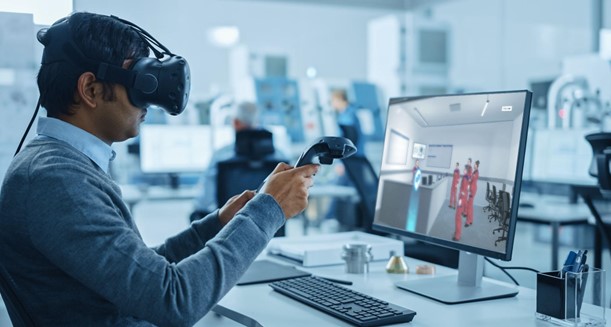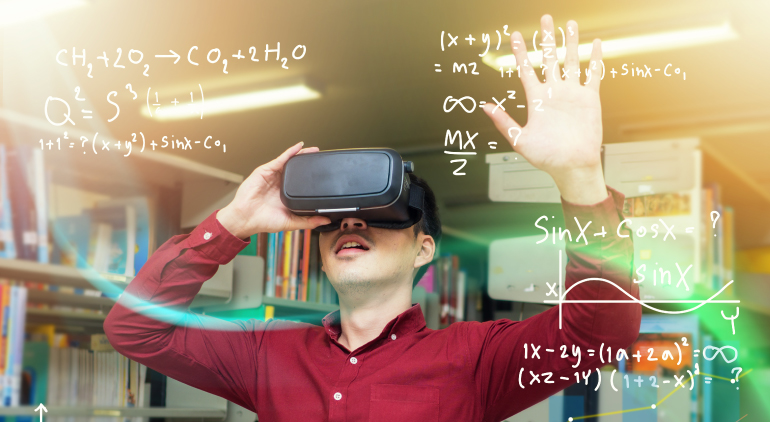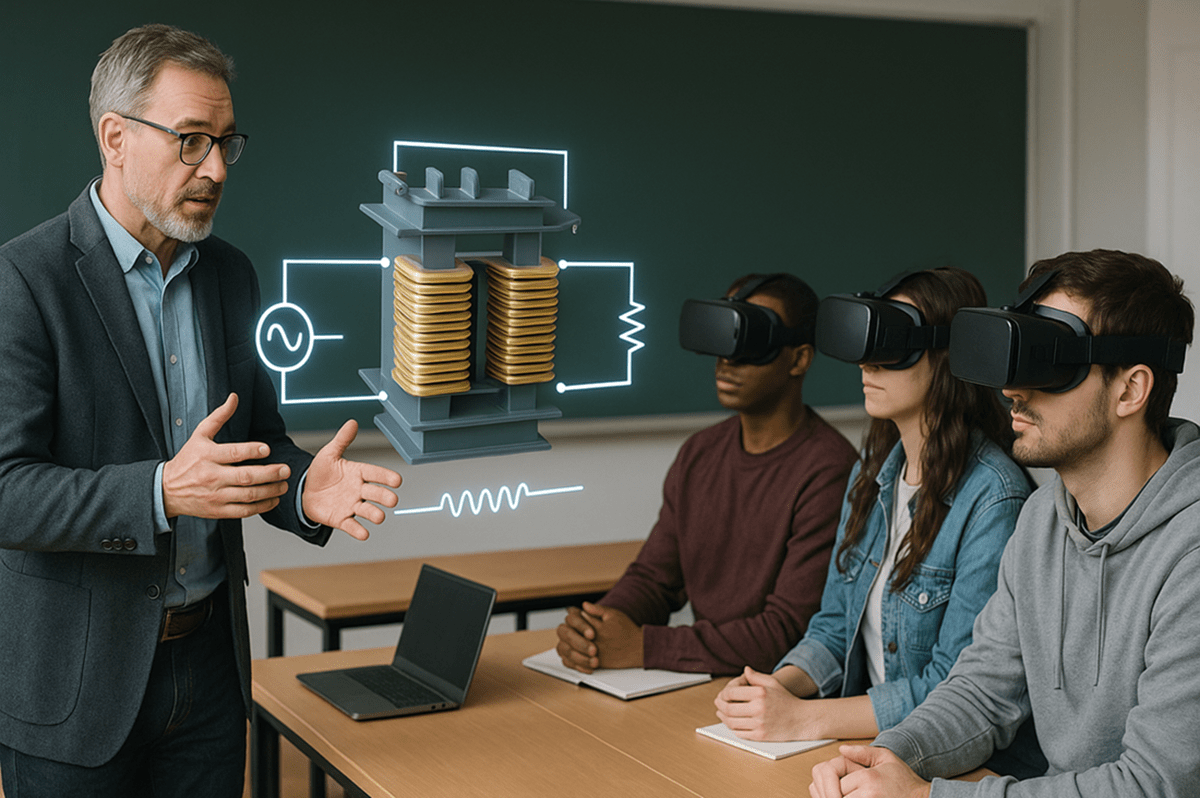5 Reasons Why Colleges Need Virtual Reality Education

Estimations predict a rise in Virtual Reality (VR) usage in the next decade. While VR is already a part of most households in the form of entertainment today, it will soon become an important asset in a student’s education and in an adult’s workplace.
In a world that will soon be shaped by a novel technology such as VR, one needs to consider whether or not the world is even ready for a change so drastic.
In a world that will soon be shaped by a novel technology such as VR, one needs to consider whether or not the world is even ready for a change so drastic.
Simply put, inviting VR into our everyday lives is still far into the future. However, VR has already been invited into workplaces. In order to keep up with the massive differentiation of this technology, we must be ready and know how to yield it best to our own use in our own discipline.
The best place to start getting prepared is by preparing the generation that will have to deal with VR the most in their workplace. That generation are students receiving higher education right now!
In other words, colleges that have not already invested in VR are producing graduates that are underprepared for the technological revolution that VR is bringing about.
Hence, we need colleges to step up their game and equip their graduates with VR in higher education technology so that our future generation will be prepared to unravel the hidden potentials of VR and use it to its maximum in their respective disciplines. If you are still not convinced, here are five reasons why colleges NEED VR education:
1. Virtual Reality Education for STEM Education Aspirants
 Science, Technology, Engineering, and Mathematics are all disciplines that require utmost focus and unparalleled resilience. Students considering pursuing these fields may have a difficult time catching up with the coursework while simultaneously breaking down complex abstract concepts and actually remembering them.
Science, Technology, Engineering, and Mathematics are all disciplines that require utmost focus and unparalleled resilience. Students considering pursuing these fields may have a difficult time catching up with the coursework while simultaneously breaking down complex abstract concepts and actually remembering them.
This, undoubtedly, leaves STEM discipline aspirants run-down and demotivated. Virtual reality education and training can offer innovative solutions to enhance their understanding and motivation.
With VR technology, however, understanding abstract concepts by making them partially tangible while simultaneously remembering them is possible! VITaL, developed in 2017, showed just how helpful virtual reality education.
With VR technology, colleges will not only be able to equip their graduate students with knowledge on the latest technology but learning concepts in their respective disciplines will be far more efficient.
2. Vocational Training with VR Colleges

Vocation Education and Training (VET) is a method of training students specifically for their jobs. This type of training is very detailed, and the practical experience allows one to pick up novel and significant skills required for their jobs.
Merging VET with VR allows one to train in the same way as they would except in a simulated version. This is especially helpful in order to save expenditure and still learn important skills.
Using Virtual Reality education (or VR-based education) with VET is essential on a college platform, especially for engineering and medical students.
While engineering students can view engines and mechanisms of engines from all angles through VR technology, medical students can explore the human anatomy and specific organs and its mechanisms from all angles, enhancing their learning experience.
3. Experiential and Immersive Learning

VR has already begun showing its potential in education through various applications. However, what is it about VR that it so very entrancing?
VR creates a world that is different from your present world.
You can be in Spain while standing in your room! VR, hence, can stimulate an entirely novel situation that could allow doctors to work under the actual stress that they would feel while doing surgery.
It could train medical students to connect with their patients with empathy. The benefits of VR are especially seen when a skill requires an experiential simulation.
You can be in Spain while standing in your room! VR, hence, can stimulate an entirely novel situation that could allow doctors to work under the actual stress that they would feel while doing surgery.
It could train medical students to connect with their patients with empathy. The benefits of VR are especially seen when a skill requires an experiential simulation.
4. Remote Learning with Virtual Reality Colleges
College students can access educational equipment like simulated versions of laboratories with VR technology. An exceptional example of a VR based application is Labster.
This application can be installed on one's phone and requires VR headsets to access. Virtual reality colleges that integrate VR technology and virtual reality education and training can reduce expenditure on laboratory maintenance by employing applications like this that can not only be used for a lot of general lab experiments but also for remote learning.
"Step into the Future of Learning: Discover Why Your College Needs Virtual Reality Education Now to Transform Classrooms, Engage Students Like Never Before, and Stay Ahead in the Digital Age!"
5. Self-sufficiency
College students, fresh out of their homes, are often looking for independence in all aspects of their life. Students could increase their independence with VR technology in place especially if professors maximized its uses in classes.
In simpler words, while virtual reality (VR) is not a technology that can replace traditional teaching methods, it is one that can supplement it, particularly in virtual reality colleges, in order to make an efficient system of teaching and a self-sufficient system of learning.
Ultimately, VR is a technology that will be seen in every workplace soon, and equipping the upcoming generation with this novel technological knowledge should be an obvious priority. But more importantly, VR for Higher Education in order to make learning and teaching a more efficient process in general.
This efficiency can already be seen in virtual reality colleges applying VR technology to education in their institutes. Hence, colleges that have not yet done so, need simply to carefully consider the benefits of VR in the education mentioned above!


.png)
.png)

.png)